
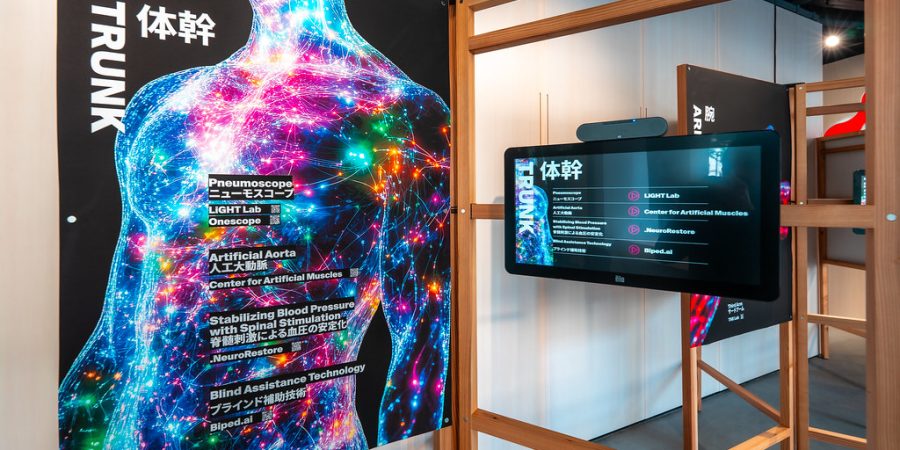
Connected Human – Osaka, Japan
The work of the CAM is currently being showcased in Osaka, Japan, as part of the Connected Human exhibition held at the Swiss Consulate. This exhibition offers a unique platform to highlight Swiss innovation and creativity, and it is an honor for the CAM to contribute to this dialogue at the intersection of technology, design, and human experience.
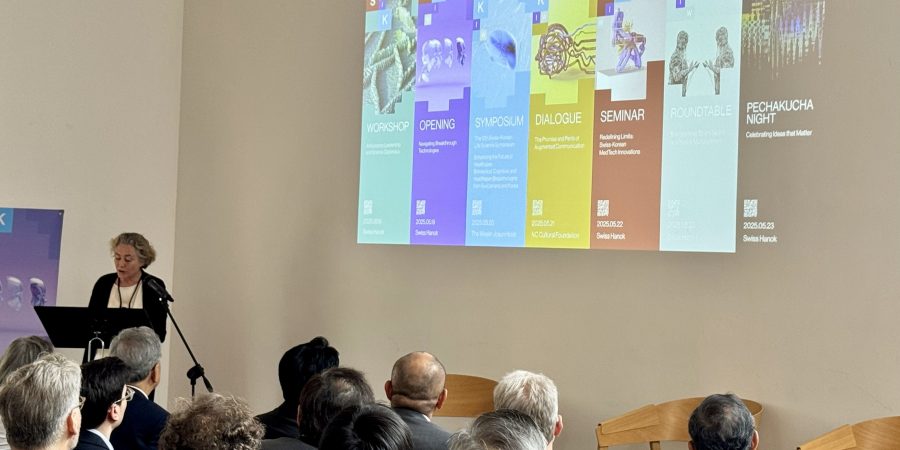
Swiss-Korean Innovation Week
Prof. Perriard and Dr. Yoan Civet had the opportunity to present the latest developments of the CAM during the Swiss-Korean Innovation Week, organized by the Swiss Embassy in Seoul at the Swiss Hanok. It was a highly valuable occasion to engage in insightful discussions not only with the Swiss delegation, but especially with local scientists and industry representatives.
https://swissinnovation.kr/about.html
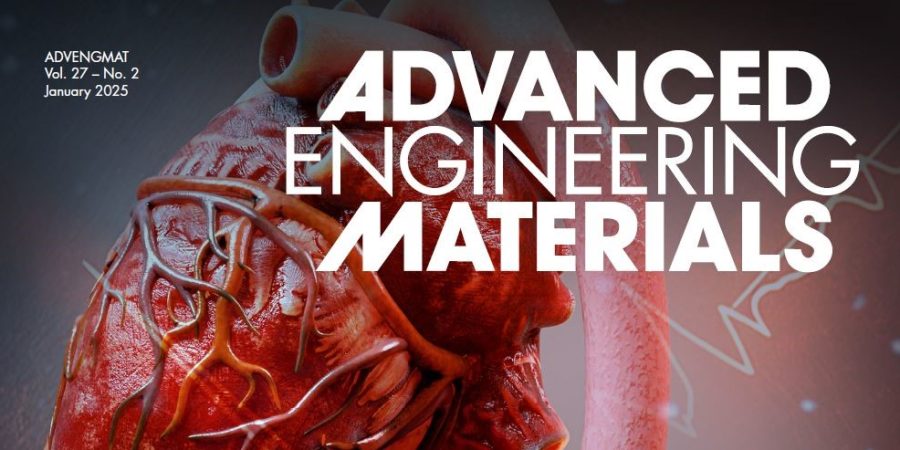
Advanced Engineering Materials
Our latest article published in Advanced Engineering Materials has made the cover! This research highlights how DEAs are on the verge of revolutionizing cardiac assist devices. Congratulations to Amine Benouhiba and the entire team for this outstanding achievement!
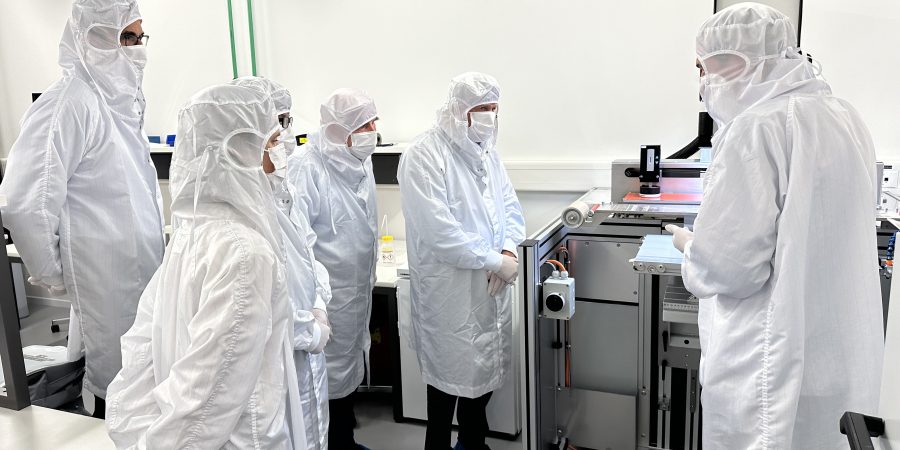
Visit of the family and foundation board
We had the privilege of welcoming members of the Siemens family, along with the board members of the foundation, on April 11, 2024. Their visit was a valuable opportunity to share insights, strengthen our collaboration, and reflect on our shared mission. We are grateful for their time and commitment.

Networking event from the Werner Siemens foundation
Prof. Perriard showcased the Center for Artificial Muscles (CAM) at the networking event hosted by the Werner Siemens Foundation. His presentation garnered significant interest and sparked engaging discussions among attendees about the potential applications of artificial muscle technology.
Copyright: WSS, Félix Wey
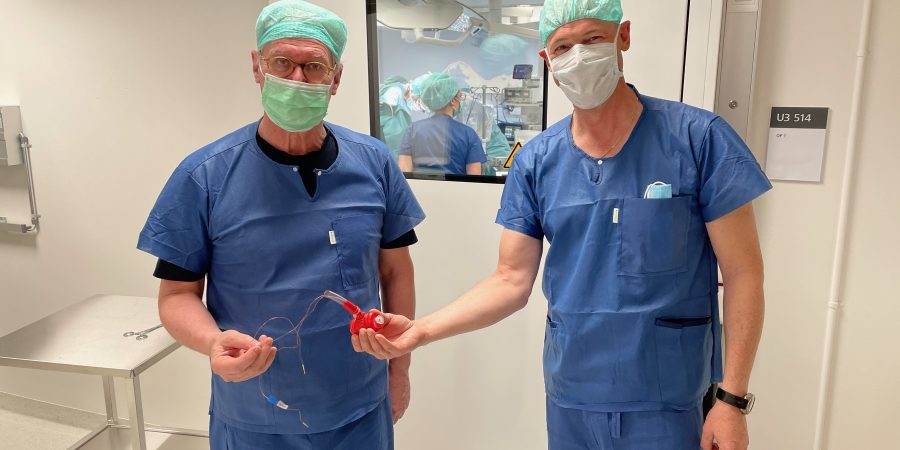
First implanted artificial tubular muscle
Scientists from EPFL and University of Bern have successfully implanted – in vivo – their first artificial tubular muscle that augments the aorta and assists cardiac function in pumping blood.
Copyright: WSS, Félix Wey
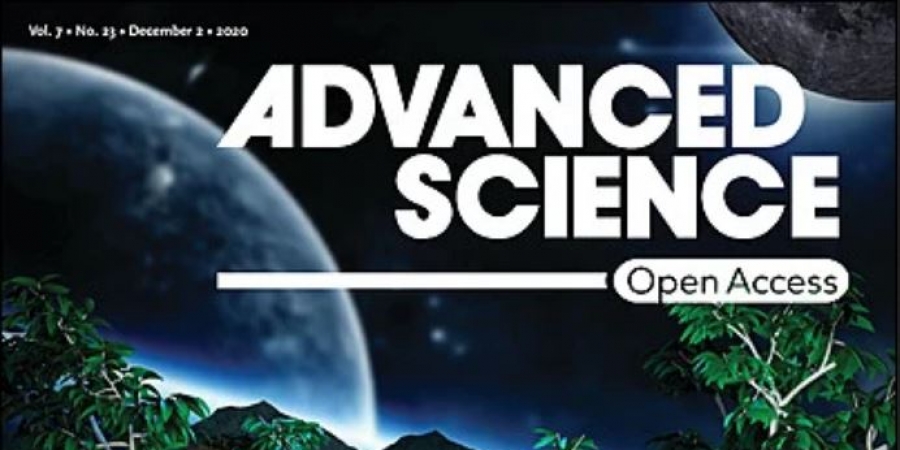
Advanced Science
Engineers at EPFL’s Center for Artificial Muscles have developed a silicone aorta that can reduce how hard patients’ hearts have to pump. Their breakthrough could offer a promising alternative to heart transplants.
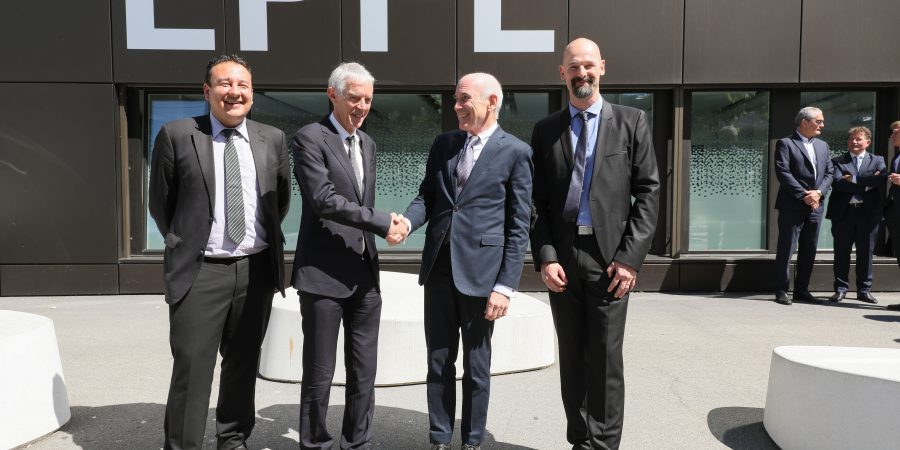
CAM Inauguration
The Center for Artificial Muscles was inaugurated this morning at Microcity in Neuchâtel following the announcement of a 12-million-franc donation by the Werner Siemens-Foundation a little over six months ago. The event was attended by Jean-Nathanaël Karakash, who is Neuchâtel’s State Councilor for the Economy and Social Action, EPFL President Martin Vetterli and representatives from the Werner Siemens-Foundation.
Copyright: EPFL, Alain Herzog
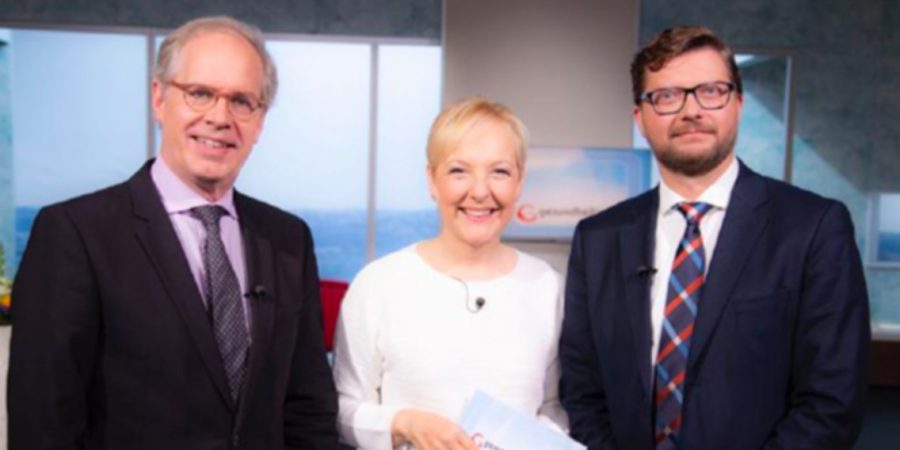
Gesundheitheute
An welchen bahnbrechenden, neuen Therapieansätzen forschen die Herzchirurgen? Beispielsweise an neuen Herzklappen. Die herkömmlichen funktionieren gut, doch es gibt auch Probleme. Es können sich Thromben bilden, die im schlimmsten Fall zu Herzinfarkt oder Hirnschlag führen. Deshalb wird nach biokompatiblen Herzklappen gesucht, welche diese Probleme vermeiden lassen. In Neuenburg arbeitet ein Forscherteam an der künstlichen Herstellung von Herzmuskeln. Das bedeutet Hoffnung für 150 000 Menschen, die an Herzschwäche leiden.